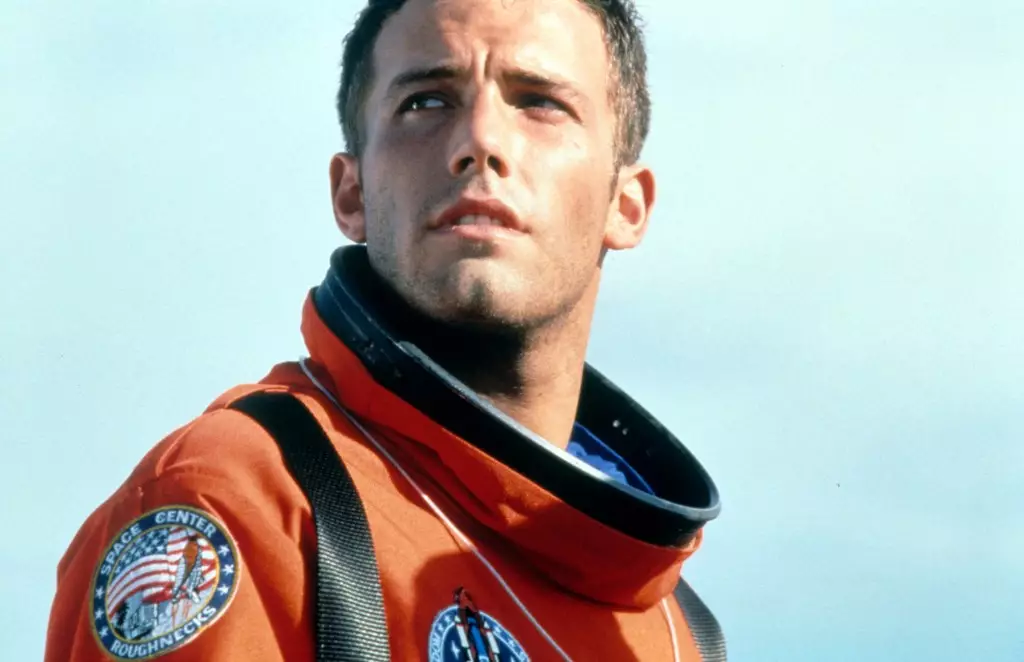Ben Affleck’s career has played out like a rollercoaster ride, filled with exhilarating peaks and bone-rattling lows. In a recent interview, Affleck openly delves into these juxtaposed experiences, providing us a rich tapestry of insights into his life as an actor. One topic that emerges prominently is his tumultuous experience filming “Justice League,” a project that he admits did not bring out the best version of himself. There’s a palpable sense of vulnerability in his disclosure; it’s as if the weight of this particular role continues to haunt him. This candidness reflects an essential part of his journey—a reminder that even celebrated actors confront self-doubt and regret, striving always to be better.
Contrasting with the struggles of “Justice League,” Affleck highlights a surprising high point: his now infamous commentary track on the 1998 film “Armageddon.” Often dismissed as a mere popcorn flick, Affleck’s commentary has ironically turned into a hallmark moment of his career, capturing a blend of earnestness and humor that struck a chord with fans. “That’s one of the achievements of my career on which I’m willing to pat myself on the back,” he states with a sense of cheeky pride. The commentary has taken on a life of its own, morphing into an unexpected phenomenon that has fascinated viewers long after the film’s release.
The Art of Keeping It Real
In the “Armageddon” commentary, Affleck’s candid observations about the film’s implausibilities embody a refreshing authenticity that is often missing in Hollywood. By openly critiquing cinematic logic, he engages the audience in an unexpected dialogue about the absurdity of the film’s premise. His audacious question to director Michael Bay, questioning why oil drillers would be tasked with saving the world from an asteroid, isn’t just a humorous quip; it serves as a metaphor for the often surreal dynamics found in blockbuster filmmaking. “Nobody said anything to me… until years later when it was played,” he recollects, revealing his shock at how his humor resonated with audiences, despite the lack of initial recognition from his peers.
What makes Affleck’s commentary so unique is not merely its content but how it embodies a deep-seated yearning for genuine interaction in a world that often feels scripted. “It was a real plan, and I was like, ‘You mean it’s a real plan at NASA to train oil drillers?’” These exchanges invite audiences to view Hollywood through a critical lens, finding humor in absurdity while questioning accepted narratives about filmmaking.
Brutal Honesty and the Silver Screen
Another captivating layer in Affleck’s interview is his willingness to convey his discontent during the filming of “Armageddon.” He acknowledges how the entire atmosphere of production led him to realize that not everyone prioritizes narrative coherence equally. “I can stop talking about it,” he recalls Billy Bob Thornton saying, who humorously reflected on the disparity between logical storytelling and the explosive fantasies typical of summer blockbusters. This acknowledgment of differing artistic priorities sheds light on the multitude of perspectives existing within the chaotic world of film production. Affleck’s candidness about these behind-the-scenes realities is not just refreshing; it is a necessary reminder that filmmaking is not merely an act but a complex interplay of numerous minds, tastes, and motivations.
His casual yet incisive comments reveal a broader truth about the film industry: the pressure to sacrifice artistic integrity for box office success is palpable. Affleck epitomizes a blend of awareness and resignation, accepting the contradictions inherent in blockbuster filmmaking. “I guess we don’t operate by those other rules here,” he laments, yet there’s an underlying acceptance of his place within the system. It’s this duality—where ambition meets realization—that defines Affleck’s unique voice in Hollywood.
Affleck’s reflections on both his triumphs and shortcomings paint a comprehensive picture of a man grappling with the complexities of fame and artistry. Rather than merely basking in the limelight, he introspectively analyzes the consequences of his choices, illustrating how the highs often come with shadows of doubt. Such honesty creates an invaluable connection with fans who find solace in his struggles and aspirations. The journey for authenticity in Affleck’s career remains a captivating narrative for audiences, illuminating the imperfections both in artistry and in life.
